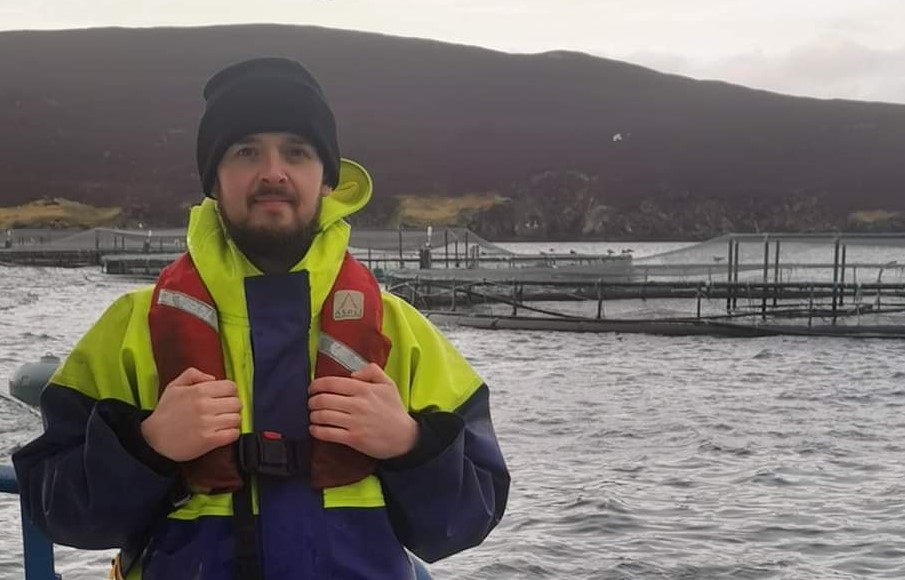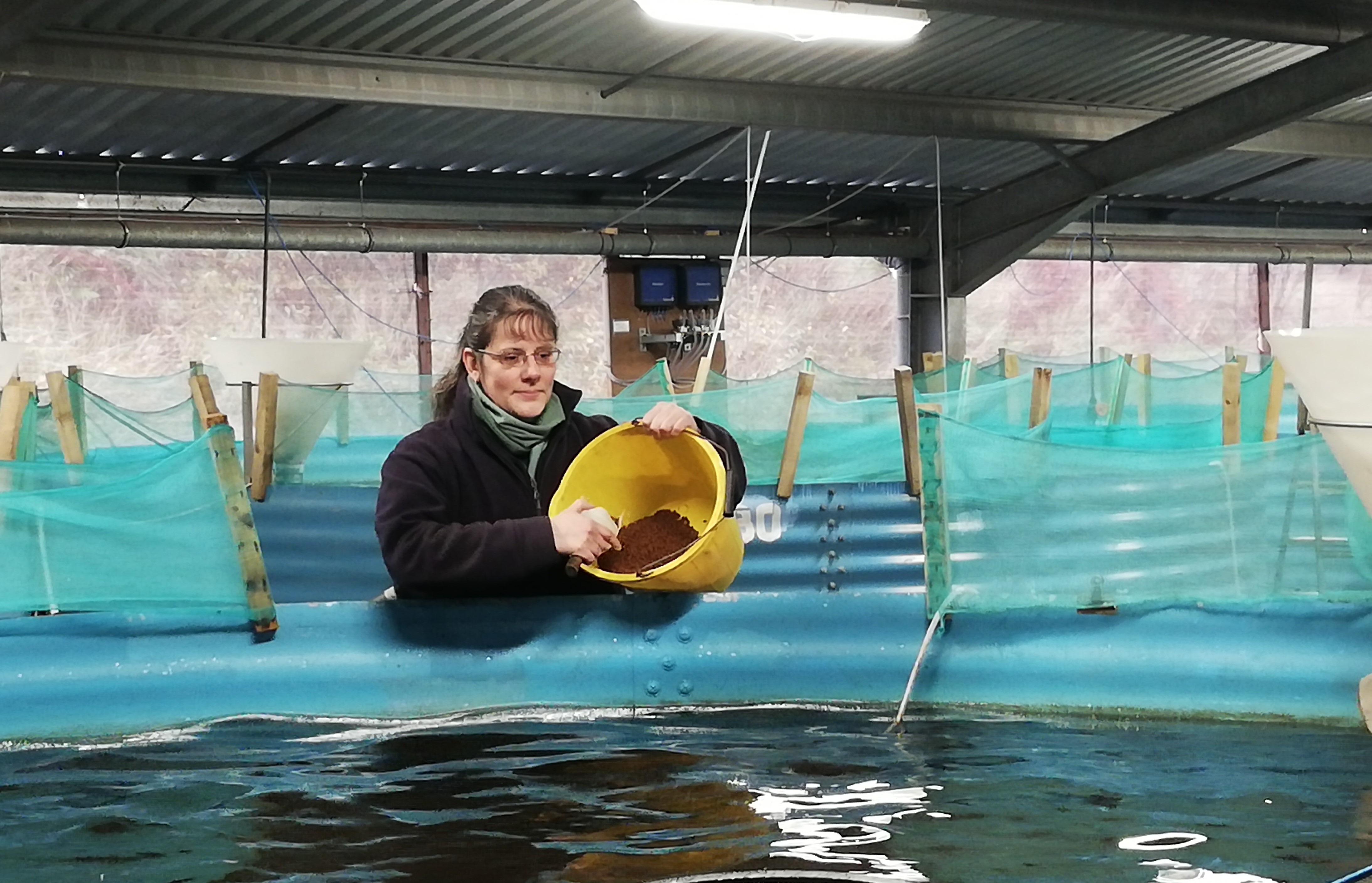

My name is Derek Ferguson, and I live in Lerwick, in the Shetland Isles, working as an assistant site manager for Scottish Seafarms.
I’ve been in this industry for 15 years now, starting off on a factory processing line.
Day-to-day, I’m involved with equipment maintenance, daily health checks, health and safety in the workplace, communication within other teams and lots of other challenges that arise as and when.
Although you develop a lot of skills in the workplace, you also have training rolled out too, including things like fish health, skippering tickets and chemical awareness.
Earlier this year, I completed an SVQ in Aquaculture Management at SCQF level 9, through work-based training. I managed to finish it a year ahead of schedule and also went on to win two national awards at Lantra Scotland’s ALBAS ceremony this year, which I’m proud of.
Our business here is ultimately responsible for maintaining the optimal health of a whole generation of stock on site, from smolt input to harvest, and the best thing about my job is producing good quality, healthy salmon. It’s really rewarding to get them to market in peak condition.
I enjoy my job and the rare sunny days working outside, on the sea, in Shetland, and would definitely recommend it to others.
This is a great place to live and work as the people are friendly and there's a great community spirit. You can go to lots of events throughout the year or just enjoy the tranquillity if you want.
It’s safe and fairly laid back, so a great place for bringing up a family.
My name is Emmanuelle Rey, and I am Assistant Manager in a Dawnfresh Farming trout hatchery in Scotland.
I have a bachelor’s degree in marine biology from Florida Tech in the USA and the equivalent of a master’s degree in aquaculture from a French school. In 2021, I also did a modern apprenticeship level 3 qualification in aquaculture. It was interesting to see if I could still do “homework” after being out of school for so long and a challenge to convey the knowledge I got through my job to someone who does not work on my site. A good basic understanding of fish biology helped. You don’t need to be an expert but if you get the basics, then you can learn to spot when fish are unhappy.
Working in fish farming in a hatchery has always been my objective. I did not really care what fish species I would work with, just that it would be at that stage in their life. I produce delicious and healthy food so I hope I bring joy to people while they eat the trout I spent a lot of time raising.
I don’t remember when I first heard about fish farming, but I always wanted to work with fish. It seemed like the most logical thing to do, but I have no idea why, since none of my family or surrounding had any kind of interest or contact with fish, not even through recreational fishing. It is especially weird since I grew up in a city in the Alps, far away from any fish.
As the assistant manager, my duties are very eclectic and not a day is the same in my job. I do all the routine tasks, like feeding fish, cleaning tanks and keeping the farm tidy. I am also in charge of all the audits we have each year meaning I keep all our paperwork updated through the years. I keep track of all the food we use and keep track of which batch of fish eats what. When our fish health observer is on holiday, I am the back-up person who checks the fish health.
You don’t really need any previous in-depth fish knowledge to start in this field as a technician. You will learn as you work. You do need to be able to concentrate on the task at hand and to have a good coordination with the rest of the team so all the work can be done smoothly.
But if you want to advance in the job, you will need to learn about fish health and laboratory work, like using a microscope and doing bacteriology. Developing skills that have nothing to do with fish is a good idea too, like learning about maintaining electrical equipment or general maintenance so you can effect temporary repairs in an emergency.
You do need passion for the job since it is often very physical and working conditions can be tough in the rain or early in the morning.
I can’t think of another job I would prefer to do. The job is very diverse and it’s also very satisfying to see big healthy fish at the end of the production.
I am very proud of the fact that for the past couple of years pretty much all our audits have been clear, meaning that the auditors found zero non-conformance every time.
The major challenge I face in fish farming is the randomness of fish health, but you just need to take it one day at the time and go with how the fish react and follow their rhythm.
For me the concept of fish farming is “green”. Instead of depleting the wild fish stock, I raise farmed fish so that the natural stocks can be left alone. A lot of hatcheries throughout the world raise endangered species too, so fish farming can actually help in replenishing wild stock.
I work in a very isolated place, so it is very peaceful. The commute is extra short, and you are not bothered by traffic or neighbours. At the same time, I am only one hour away from Edinburgh or Glasgow so can get all the culture and shopping I need very easily.
